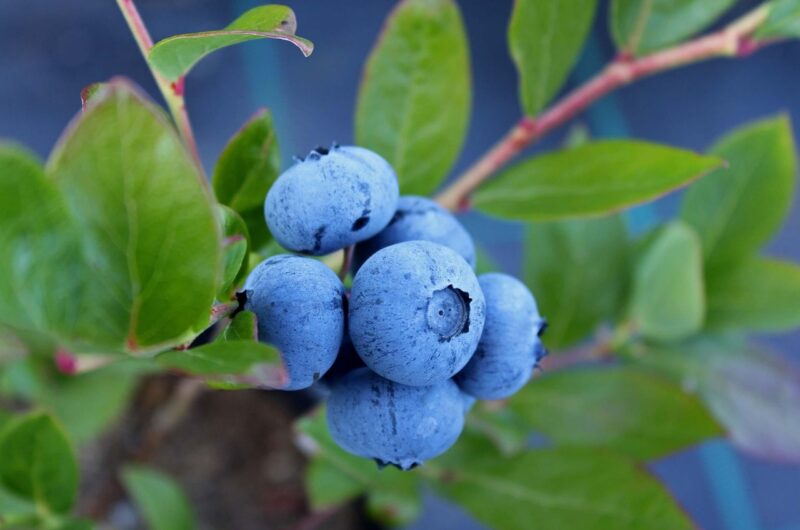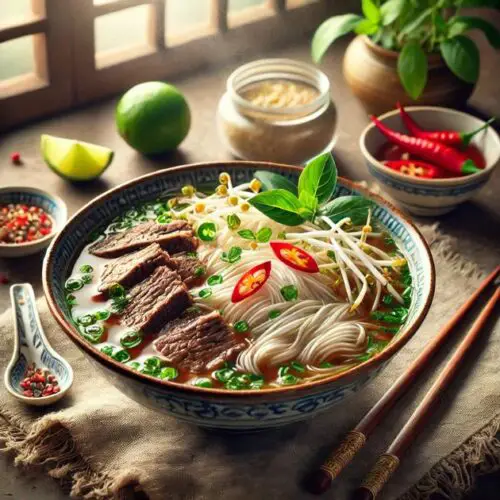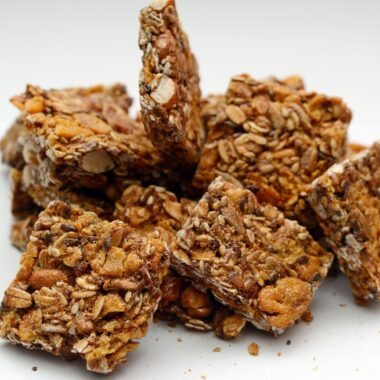The quest for longevity has fascinated humanity for centuries. While no single food can guarantee a longer life, science has identified certain dietary choices that can significantly improve health, reduce the risk of chronic diseases, and potentially extend your lifespan. These foods are packed with nutrients, antioxidants, and compounds that support cellular health, reduce inflammation, and protect against age-related decline. Below, we explore 12 foods backed by research that can help you live longer—and why they work.
1. Blueberries: The Antioxidant Powerhouse
Blueberries are often hailed as a superfood, and for good reason. These tiny berries are rich in antioxidants, particularly anthocyanins, which give them their vibrant blue hue. Antioxidants combat oxidative stress—a process where free radicals damage cells, accelerating aging and increasing the risk of diseases like cancer and heart disease.
A 2019 study published in the American Journal of Clinical Nutrition found that higher intake of anthocyanin-rich foods, like blueberries, was associated with a lower risk of mortality from cardiovascular disease. Blueberries also support brain health. Research from the University of Cincinnati showed that older adults who consumed blueberry supplements exhibited improved memory and cognitive function, suggesting a protective effect against age-related cognitive decline. Add a handful to your oatmeal or yogurt for a delicious longevity boost.
2. Salmon: Omega-3s for Heart and Brain
Fatty fish like salmon are a goldmine of omega-3 fatty acids, specifically EPA and DHA. These healthy fats are critical for heart health, reducing inflammation, and maintaining brain function. A 2021 study in the Journal of the American Medical Association found that higher omega-3 levels in the blood were linked to a 17% lower risk of death from all causes.
Salmon’s benefits extend beyond the heart. Its high levels of vitamin D and selenium support immune function and DNA repair, both of which decline with age. Grill or bake a salmon fillet a couple of times a week to harness these life-extending properties—just steer clear of frying to keep it healthy.
3. Nuts: A Handful of Longevity
Nuts—whether almonds, walnuts, or pistachios—are nutritional powerhouses. They’re loaded with healthy fats, fiber, protein, and micronutrients like magnesium and vitamin E. A landmark study from the New England Journal of Medicine in 2013 tracked over 100,000 people and found that those who ate nuts daily had a 20% lower risk of dying from any cause over 30 years compared to those who didn’t.
Walnuts, in particular, stand out for their high levels of ALA (alpha-linolenic acid), a plant-based omega-3. Meanwhile, almonds provide vitamin E, which protects skin and cells from oxidative damage. A small handful (about 1 ounce) daily is enough to reap the benefits without overdoing the calories.
4. Olive Oil: The Mediterranean Secret
Olive oil, a cornerstone of the Mediterranean diet, is linked to longer life expectancy in regions where it’s a dietary staple. Rich in monounsaturated fats and polyphenols, extra virgin olive oil (EVOO) reduces inflammation and protects against heart disease. A 2022 study in the Journal of the American College of Cardiology found that replacing just 5 grams of margarine or butter with olive oil daily lowered the risk of cardiovascular mortality by up to 19%.
The polyphenols in EVOO also have anti-aging effects at the cellular level, supporting telomere length—a marker of biological aging. Drizzle it over salads or use it for light cooking to maximize its benefits.
5. Leafy Greens: Nature’s Multivitamin
Spinach, kale, and Swiss chard are packed with vitamins A, C, and K, as well as folate, magnesium, and antioxidants.
These nutrients support everything from bone health to DNA repair. A 2018 study in Neurology found that older adults who ate one to two servings of leafy greens daily had cognitive abilities equivalent to someone 11 years younger.
The nitrates in leafy greens also improve blood flow and lower blood pressure, reducing the strain on your heart. Toss them into smoothies, salads, or sauté them as a side dish to keep your body youthful.
6. Avocados: Creamy and Life-Extending
Avocados are more than just a trendy toast topping—they’re a longevity food backed by science. High in monounsaturated fats, fiber, and potassium, avocados support heart health and help regulate cholesterol levels. A 2013 study in the Nutrition Journal linked avocado consumption to better diet quality and a lower risk of metabolic syndrome, a cluster of conditions that increase the likelihood of heart disease and diabetes.
Avocados also contain lutein and zeaxanthin, antioxidants that protect eye health as you age. Mash one into guacamole or slice it onto whole-grain bread for a nutrient-packed meal.
7. Dark Chocolate: A Sweet Path to Longevity
Yes, chocolate can be good for you—specifically dark chocolate with at least 70% cocoa. It’s rich in flavanols, compounds that improve blood vessel function, lower blood pressure, and reduce inflammation. A 2018 study in the European Journal of Preventive Cardiology found that moderate dark chocolate consumption was associated with a lower risk of heart failure.
The key is moderation—about 1 ounce (a few squares) a few times a week provides benefits without excess sugar or calories. Pair it with nuts or berries for a double dose of longevity.
8. Legumes: The Humble Lifesaver
Beans, lentils, and chickpeas are affordable, versatile, and incredibly good for you. They’re high in fiber, plant-based protein, and complex carbohydrates, which stabilize blood sugar and support gut health. A 2016 study across five continents, published in Archives of Internal Medicine, found that eating legumes four times a week was linked to a 22% lower risk of heart disease.
Legumes also contain polyphenols and resistant starch, which feed beneficial gut bacteria—a factor increasingly tied to longevity. Swap them for meat in soups or stews to extend your lifespan one bowl at a time.
9. Green Tea: The Elixir of Life
Green tea has been a staple in long-lived cultures like Japan for centuries, and science backs its reputation. It’s rich in catechins, antioxidants that protect cells, reduce inflammation, and improve metabolism. A 2020 study in the European Journal of Preventive Cardiology followed over 100,000 people and found that habitual green tea drinkers (at least three times a week) lived about 1.26 years longer than non-drinkers, thanks to a lower risk of heart disease and stroke.
The L-theanine in green tea also promotes relaxation without drowsiness, supporting mental well-being. Sip a cup daily, hot or iced, for a simple longevity ritual.
10. Tomatoes: Lycopene for Long Life
Tomatoes are a vibrant source of lycopene, a potent antioxidant linked to reduced risk of heart disease and certain cancers. Cooking tomatoes (think sauces or roasted dishes) increases lycopene’s bioavailability, making it easier for your body to absorb. A 2017 study in the British Journal of Nutrition found that higher lycopene intake was associated with a 37% lower risk of dying from cardiovascular causes.
Tomatoes also provide vitamin C and potassium, which support immune and heart health. Add them to salads, soups, or sauces to brighten your plate and your lifespan.
11. Sweet Potatoes: Beta-Carotene Boost
Sweet potatoes are a staple in Okinawa, Japan—one of the world’s “Blue Zones,” where people routinely live past 100. They’re rich in beta-carotene, a precursor to vitamin A that protects eyesight and skin while fighting oxidative stress. A 2019 study in Nutrients linked higher beta-carotene levels to a lower risk of all-cause mortality.
Their complex carbs and fiber also keep blood sugar stable, reducing the risk of diabetes. Roast them, mash them, or bake them into fries for a tasty way to support longevity.
12. Turmeric: The Golden Spice
Turmeric, a bright yellow spice common in Indian cuisine, owes its benefits to curcumin—a compound with powerful anti-inflammatory and antioxidant properties. Chronic inflammation drives many age-related diseases, from arthritis to Alzheimer’s, and curcumin helps combat it. A 2021 review in Frontiers in Aging Neuroscience highlighted curcumin’s potential to delay brain aging and improve memory.
Pair turmeric with black pepper (which boosts curcumin absorption) in curries, teas, or even smoothies. A little goes a long way toward a longer, healthier life.
Why These Foods Work
The common thread among these 12 foods is their ability to fight inflammation, oxidative stress, and cellular damage—key drivers of aging and disease. They’re also nutrient-dense, meaning they deliver maximum health benefits without excess calories. Many align with dietary patterns like the Mediterranean and Blue Zone diets, which are consistently linked to longer lifespans in population studies.
For example, the Mediterranean diet—rich in olive oil, nuts, fish, and vegetables—has been shown to reduce mortality by up to 25%, according to a 2018 study in Circulation. Similarly, Blue Zone populations thrive on legumes, sweet potatoes, and greens, often avoiding processed foods entirely.
How to Incorporate Them Into Your Life
You don’t need a complete diet overhaul to benefit. Start small:
- Swap butter for olive oil when cooking.
- Replace sugary snacks with nuts or dark chocolate.
- Add blueberries or spinach to your morning smoothie.
- Experiment with turmeric in soups or tea.
Aim for variety—eating a rainbow of these foods ensures you get a broad spectrum of nutrients. Pair them with other healthy habits like regular exercise, adequate sleep, and stress management for the best results.
The Bigger Picture
While these foods can’t stop aging entirely, science shows they can slow it down and reduce your risk of dying prematurely. They work best as part of a balanced lifestyle, not as magic bullets. As of March 13, 2025, ongoing research continues to refine our understanding of nutrition and longevity, but these 12 stand out for their consistent, evidence-based benefits.
So, stock your kitchen with these life-extending staples. Your future self—potentially a longer-living one—will thank you.


















